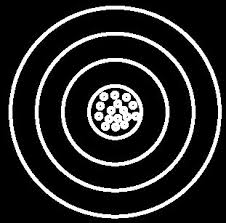记忆方法
1. 形容表达简明扼要、直奔主题、一针见血、开门见山、直指要害,没有任何多余的、赘述的、不相关的内容或东西。所以由此引申为:精确的、准确的。
中文词源
precise 精确的
pre-,预先,-cis,剪,切,词源同concise,excise.引申词义精确的。
英语词源
- precise
-
precise: [16] Something that is precise is etymologically ‘cut off in front’. The word was acquired via French précis (subsequently borrowed as the noun précis ‘summary’ in the 18th century) from Latin praecīsus, an adjectival use of the past participle of praecīdere ‘shorten’. This was a compound verb formed from the prefix prae- ‘in front’ and caedere ‘cut’ (source also of English concise, decide, excise, etc). The notion of being ‘shortened’ gradually slipped via ‘expressed shortly, leaving out extraneous matter’ to ‘exact’.
=> concise, decide, excise, précis - precise (adj.)
- mid-15c., from Middle French précis "condensed, cut short" (14c.) and directly from Medieval Latin precisus, from Latin praecisus "abrupt, abridged, cut off," past participle of praecidere "to cut off, shorten," from prae "before" (see pre-) + caedere "to cut" (see -cide; for Latin vowel change, see acquisition). Related: Precisely (late 14c.).
权威例句
- 1. Elgar supplied his works with precise indications of tempo.
- 埃尔加给自己的作品标上了精确的节奏标记。
- 2. I seem to remember giving you very precise instructions.
- 我好像记得给过你非常明确的指示。
- 3. Each motion must be delicate and precise, involving tiny movements.
- 每一个动作都必须小心、准确,一点点地移动。
- 4. The precise details of the origins of life remain hidden.
- 生命起源的确切详情仍是个谜。
- 5. It was difficult to measure the precise impact of the labor action.
- 此次罢工影响几何,难以作出准确的评估。

